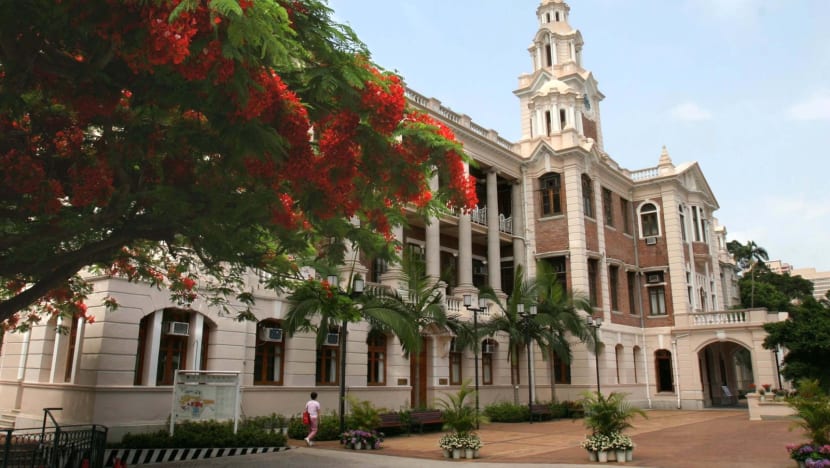World
Hong Kong Student Warned for AI-Generated Deepfake Pornography

A student from the University of Hong Kong (HKU) received only a warning letter and was ordered to apologise after allegedly using artificial intelligence (AI) to create over 700 sexually explicit deepfake images of his friends and classmates. This incident, which has sparked significant concern and calls for legislative change, came to public attention on July 12, 2023, after three victims shared details of their experience online.
The student, referred to as X, is a male law student at HKU. Reports indicate that a friend discovered the pornographic images on X’s personal laptop in mid-February. These images were reportedly organised into folders named after approximately 20 to 30 victims, including friends and classmates, and even teachers from primary and secondary school.
Victims Demand Accountability
According to the victims’ statement, X admitted to using photos taken from social media to generate the explicit images through free online AI software. Many of the victims had varying levels of acquaintance with X, and none had given consent for their images to be used. Initially, X attempted to apologise to five victims in person but only followed through with two, while he claimed that only five individuals were affected.
In mid-March, victims contacted HKU to seek a review of the case by the university’s disciplinary committee, citing “ragging,” a term used for humiliating behaviour among students. Under Hong Kong law, the disciplinary committee has the authority to reprimand, fine, suspend, or even expel students found guilty of such offences.
The victims also requested appropriate disciplinary measures to hold X accountable for what they described as “sexual violence.” Additionally, they sought class adjustments to ensure their safety, as some shared tutorials with X. In late March, HKU engaged with the victims to understand the incident better.
University’s Response and Legislative Pressure
During a meeting with victims, two university staff members were present. One indicated that a legal consultation suggested X’s actions were “not likely to constitute any offence.” Another proposed issuing a warning letter and summoning X for a verbal reprimand. By mid-April, one staff member confirmed via email that the warning letter had been filed and that X had sent a brief apology, which many victims considered insincere.
Victims expressed frustration over the university’s slow response, particularly regarding their request for class separation from X. They shared that they were forced to attend classes with him multiple times, resulting in “unnecessary psychological distress.”
In a statement released on July 12, HKU acknowledged the concerns raised by the victims and confirmed adherence to internal regulations and relevant laws. The university stated that it has taken various steps, including class adjustments, to address the needs of the affected students. HKU reaffirmed its commitment to maintaining a safe and respectful learning environment.
In light of this incident, advocates and lawmakers in Hong Kong are calling for stronger laws to ban deepfake pornography. Doris Chong Tsz-wai, executive director of advocacy group Rain Lily, stressed that the impact of AI-generated images on victims is significant, regardless of their artificial nature. She noted that current laws only penalise the publication of non-consensual images, leaving a gap regarding their generation.
Legislative Council member Doreen Kong Yuk-foon also urged for stricter regulations, advocating for legislation similar to South Korea’s recent amendments, which impose penalties for possessing or viewing deepfake pornography. In South Korea, such offences can result in up to three years in prison or fines reaching 30 million won (approximately USD 21,740).
The University of Hong Kong’s handling of this case highlights broader societal issues regarding consent and the use of technology in perpetuating sexual violence. As the conversation around deepfake pornography continues, the call for legislative reform grows louder, reflecting a need for stronger protections for victims in the digital age.
-

 World5 months ago
World5 months agoSouth Korea’s Foreign Minister Cho Hyun to Visit China This Week
-

 Business5 months ago
Business5 months agoStarling Bank Plans Secondary Share Sale, Targeting $5.4 Billion Valuation
-

 Top Stories5 months ago
Top Stories5 months agoMunsang College Celebrates 100 Years with Grand Ceremony
-

 World5 months ago
World5 months agoPAS Aims to Expand Parliamentary Influence in Upcoming Election
-

 Business7 months ago
Business7 months agoKenvue Dismisses CEO Thibaut Mongon as Strategic Review Advances
-

 Lifestyle6 months ago
Lifestyle6 months agoHumanism Camp Engages 250 Youths in Summer Fest 2025
-

 Sports6 months ago
Sports6 months agoDe Minaur Triumphs at Washington Open After Thrilling Comeback
-

 Sports7 months ago
Sports7 months agoTupou and Daugunu Join First Nations Squad for Lions Clash
-

 Top Stories7 months ago
Top Stories7 months agoColombian Senator Miguel Uribe Shows Signs of Recovery After Attack
-

 World7 months ago
World7 months agoASEAN Gears Up for Historic Joint Meeting of Foreign and Economic Ministers
-

 Health6 months ago
Health6 months agoNew Study Challenges Assumptions About Aging and Inflammation
-

 Business6 months ago
Business6 months agoOil Prices Surge Following New EU Sanctions on Russia









